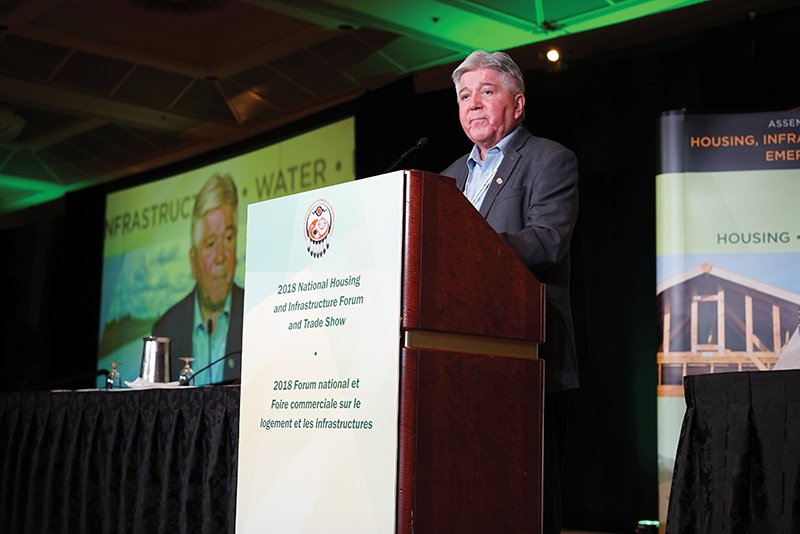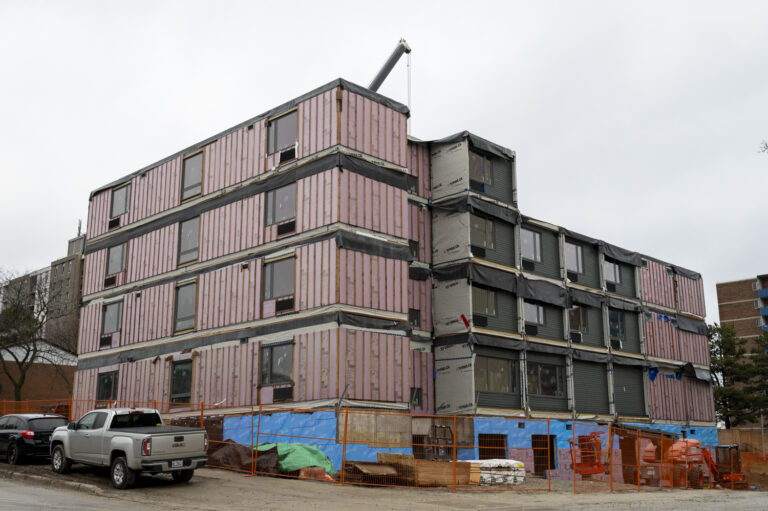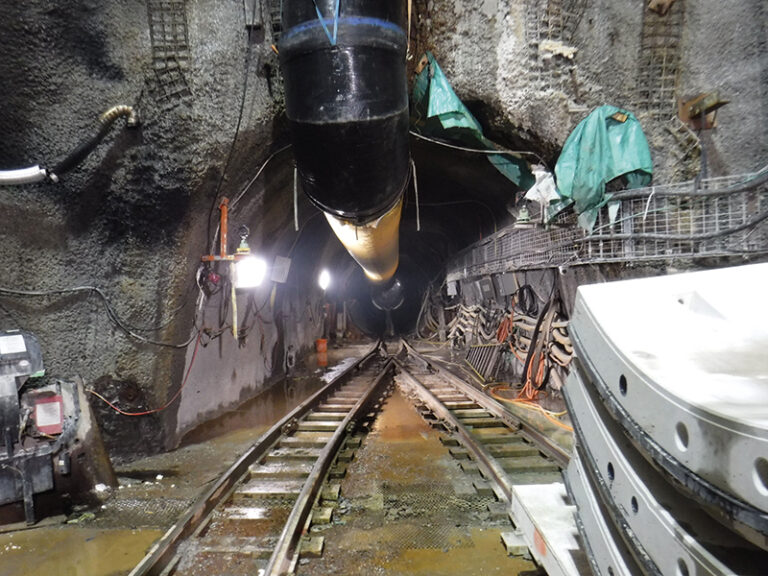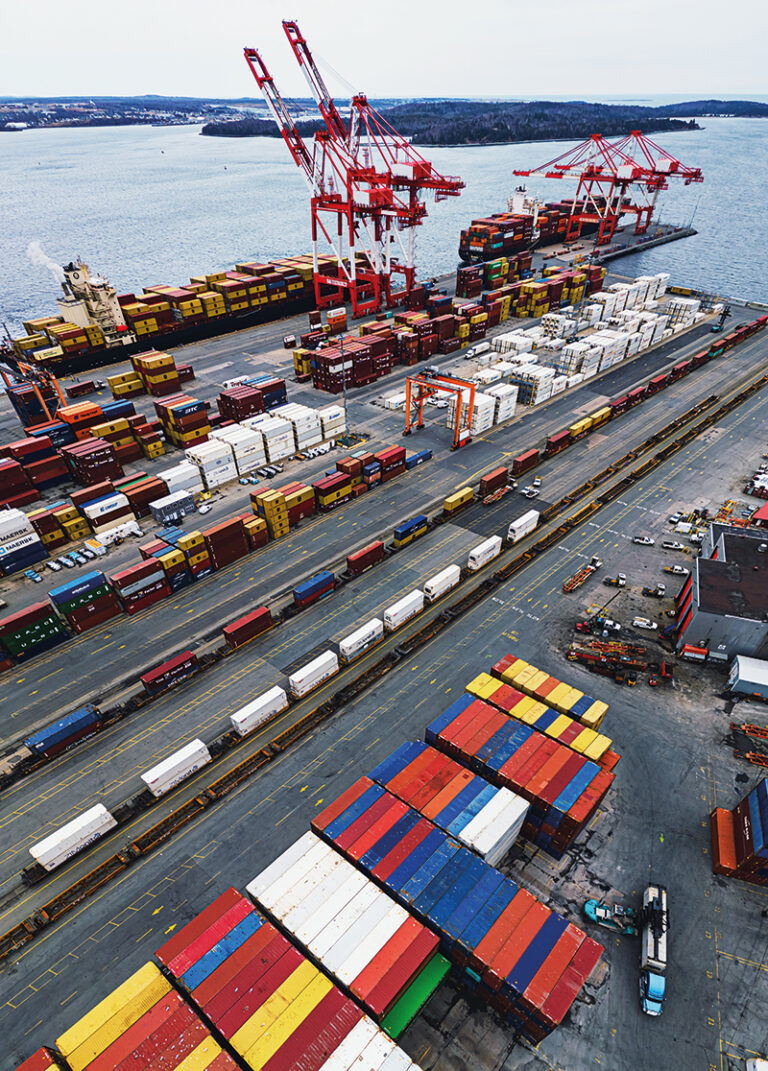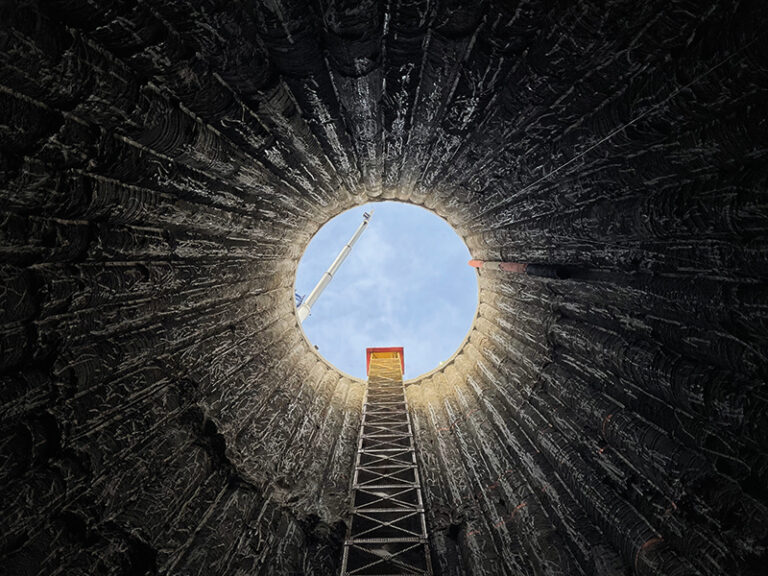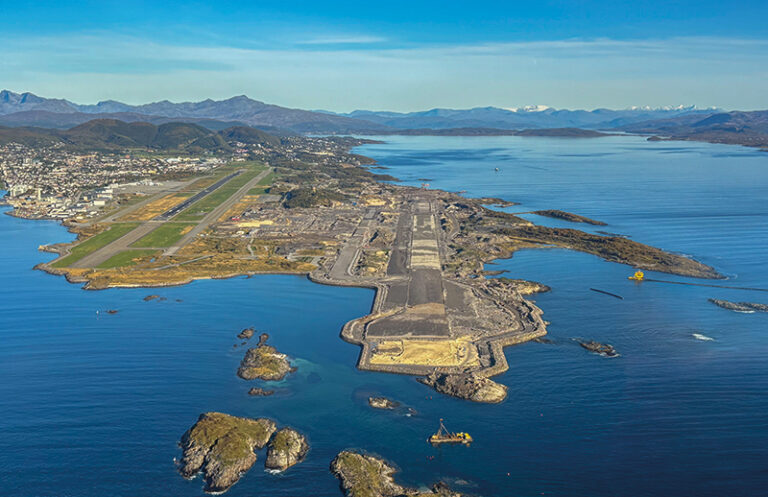Advocating for an inclusive and secure future with AFN Director of Infrastructure, Irving LeBlanc.
By Connie Vitello
What are the unique challenges facing Indigenous infrastructure in Canada and how have the unprecedented events of the past year helped or hindered the progress of sustainable infrastructure development for First Nations communities? ReNew Canada recently engaged Irving LeBlanc, the director of Housing, Infrastructure and Emergency Management for the Assembly of First Nations (AFN), to provide insights into upcoming infrastructure initiatives and thought leadership on policies, programs, and best practices to support successful and sustainable Indigenous infrastructure.
How has your background in engineering informed your views on Indigenous infrastructure development and how has your role changed over the years?
As one of the first few First Nations people to attain an engineering degree, my engineering education has given me the opportunity to ensure First Nations have infrastructure that is equal to or better than that enjoyed by other Canadians. Being First Nations and a professional engineer has given me the ability to see both sides of the equation. The provision of critical infrastructure that ensures safe water and proper sanitation is a basic human right and should not be considered a budget or cost cutting exercise. There is a real need to understand the human aspects of providing these basics needs to First Nations across the country.
I have been involved in advocating for better quality of life for First Nations from a community perspective for more than 26 years. Throughout that time, I have seen that partners are now working with us to make change possible.
The unprecedented COVID-19 pandemic emphasized the infrastructure crisis in First Nations across Canada. What is your team doing to advocate for critical investments to support the needs of these communities? What are the fundamental and systemic changes needed to attain better security in housing, infrastructure, and emergency planning?
The AFN Infrastructure Sector continues to advocate for major federal government investments in community infrastructure, as well as for federal government support for the creation of First Nations-led policies and solutions related to access to safe, clean, and reliable drinking water and adequate infrastructure. This includes urging the federal government to actively partner with First Nations to share in decision-making processes and to proactively inform First Nations of the financial information relevant to closing the First Nations infrastructure gap. The AFN has long advocated for long-term federal funding commitments and to shift the current infrastructure process to the option of a newly established Indigenous infrastructure bank.
We have also recognized the rise in the cost of construction materials for housing and infrastructure projects, due to the COVID-19 pandemic, which has made infrastructure projects significantly more costly. First Nations have exercised leadership in pandemic and emergency response efforts and continue to advocate to ensure investments acknowledge the impacts of the significant rise of construction costs on First Nations due to the pandemic.
Infrastructure reform will require a new way of thinking about Operations and Maintenance (O&M) for First Nations. The current policy is outdated and was created without First Nations input, and, as such, does not adequately address First Nations infrastructure asset repairs and maintenance costs. A fundamental change that must occur is that First Nations need to be included in federal, provincial, and territorial government program development as decision-makers, every step of the way.
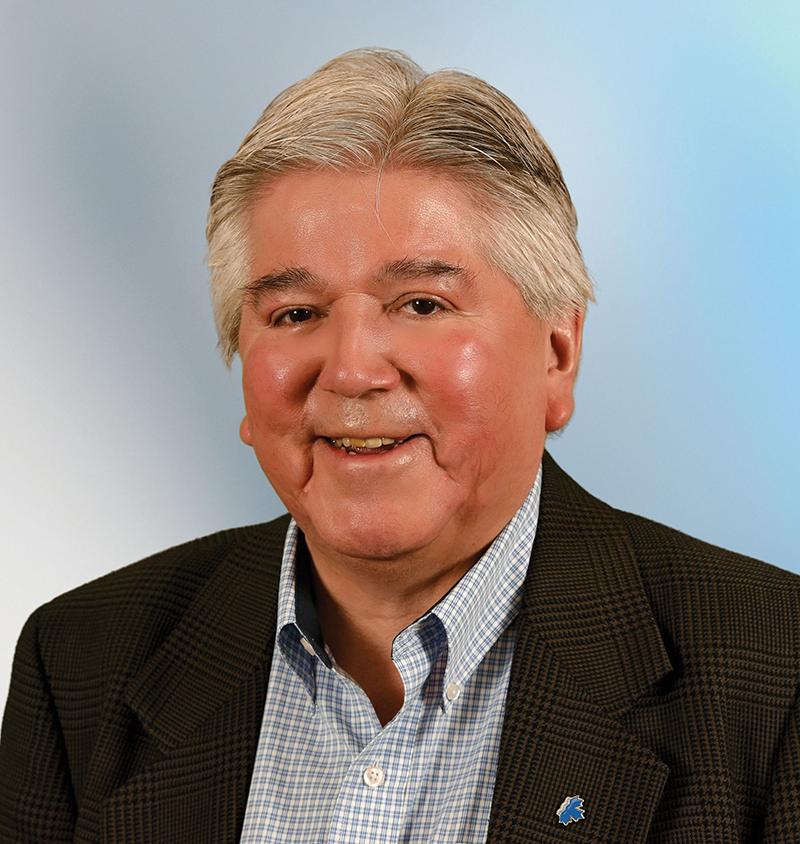
Many Indigenous communities in Canada are in need of new and improved infrastructure, including four season roads, modernized schools, and clean energy options. What are you doing to support partnerships between First Nations communities and asset developers to increase opportunities for development?
The AFN’s advocacy role includes promoting the importance of strong relationships as a basis for any partnership or development, and this includes the implementation of the United Nations Declaration on the Rights of Indigenous Peoples which sets a framework for how we should work together. Our efforts related to infrastructure can include making connections between First Nations or First Nations organizations and industry that may have technology and operational solutions to their problems.
The AFN also hosts annual national gatherings to bring together First Nations and industry experts to discuss priorities, share progress and identify solutions. The AFN’s Water and Wastewater Symposiums, Water Summits and Housing and Infrastructure Forums provide an opportunity for First Nations and industry to network, share and focus on solutions.
Budget 2021 provides billions of dollars to help close the gaps between Indigenous and non-Indigenous people, including the Canada Infrastructure Bank’s new investment target of $1 billion for Indigenous infrastructure projects in partnership with Indigenous Peoples for priority areas. Is this sufficient investment support and do you have an opinion as to which types of projects should be fast-tracked?
The urgent need for investment in First Nations infrastructure was recognized in Budget 2021, which invested $6 billion over five years to support infrastructure in Indigenous communities. However, this still falls short of addressing widespread essential infrastructure needs at the community-level. Experts have estimated that up to $30 billion is needed to close the infrastructure gap.
The work of the AFN’s Infrastructure Sector is directly connected to the Truth and Reconciliation Commission’s Calls to Action related to health. A healthy First Nation is supported by access to clean drinking water and proper sanitation, which leads to positive health and education outcomes, and improved self-esteem and opportunities for youth. Furthermore, investments into quality communities help to further economic development.
Indigenous Services Canada recently provided an update on progress toward clean drinking water in First Nations communities and there are initiatives underway to address the remaining water advisories. What is your opinion on the progress of the initiatives to maintain safe water infrastructure systems?
There is a sustained commitment by the federal government to end boil water advisories in First Nations, but First Nations want and need to see results. Too many First Nations across the country still rely on bottled water which does not provide adequate supplies for health and sanitation. As noted by the Office of the Auditor General in their February 2021 report on access to safe drinking water in First Nations communities, half of the long-term drinking water advisories that remain have been in effect for more than a decade, which highlights the chronic and systemic nature of this drinking water crisis.
It is also critical to keep in mind that the current number of long-term drinking water advisories is only the tip of the iceberg. The reported number includes only Indigenous Services Canada-funded assets, and systems with five connections or more; it does not include the many First Nations on individual wells and cisterns. The AFN continues to urge the federal government to work in full partnership with First Nations to develop plans and approaches to ensure all First Nations have access to safe, clean and reliable drinking water, including those First Nations on decentralized systems.
First Nations across the country remain committed to repealing and replacing the Safe Drinking Water for First Nations Act, and the AFN remains committed to working in partnership to co-draft new, First Nations-led legislation, which should be fully funded and should expand the funding allocations for First Nations in need of upgraded water and wastewater systems. The AFN continues to advocate for major investments to critical infrastructure, including basic needs of water and wastewater infrastructure, which are particularly important in the context of this pandemic and closing the infrastructure gap by 2030.
There has been a positive trend for female First Nations leadership. Mary Simon recently became the first Indigenous person to serve as Governor General. RoseAnne Archibald is the new national Chief of the Assembly of First Nations, becoming the first woman ever to hold the title. How do you think their influence will impact the progress of First Nations infrastructure initiatives?
I stand with many First Nations and Indigenous Peoples in celebrating both Governor General Mary Simon and National Chief RoseAnne Archibald in their new roles and look forward to their continued strong leadership and action.
The promotion and investment into First Nations infrastructure initiatives are key pillars in National Chief Archibald’s 100 Day Plan, specifically the goal of a Post-Pandemic Recovery Plan for First Nations in the promotion of a strong economic recovery for First Nations.
In her former role as the AFN Ontario Regional Chief and Lead on Water, RoseAnne Archibald was a tireless advocate for access to safe and clean drinking water and adequate infrastructure for all First Nations and I know she will continue to fight for our most basic and sacred human right, access to safe water for all First Nations.
The tragic discovery of residential school graves has led to a national conversation on reconciling mistreatment of First Nations communities and the ongoing impacts. What is the AFN doing to advocate for justice and ensure safer, more responsible housing decisions moving forward?
Reconciliation is also about new approaches and new nation-to-nation relationships in the spirit of recognizing self-determination, jurisdiction, Treaties and sovereignty. Canada has a long history of making decisions about First Nations without including First Nations. This has especially been true in First Nations housing where federally designed approaches have not resulted in sustainable housing or reliable infrastructure. These approaches have been detrimental to social, economic and health outcomes of First Nations.
The AFN has taken steps with federal partners towards reconciliation by working together on a strategy for fundamental reform to federal housing policy. The aim is that First Nations will control all aspects of their own housing on condition of sufficient, sustainable and multi-year federal investments.
In 2018, the AFN Chiefs-in-Assembly endorsed a resolution for the National First Nations Housing and Related Infrastructure Strategy. The Strategy was developed through a Joint Working Group with Chiefs, Regional Housing Technicians, AFN, Indigenous Services Canada (ISC), Canada Mortgage and Housing Corporation (CMHC) and Employment and Social Development Canada (ESDC). Various projects and initiatives are being implemented to advance First Nations jurisdiction over housing and while working to improve housing programs and services.
Based on an AFN-led national First Nations housing survey, work has begun on developing cost estimates of current and future housing needs of First Nations that will be used in a future budget advocacy initiative.
Overall, the legacy of the Indian Act and colonization has created challenges for First Nations. These challenges must be addressed immediately and in the longer term as First Nations do not want to inherit the entrenched dysfunctional legacy of federal housing and infrastructure programs and services.
What milestones in First Nations infrastructure development have you been proud to help achieve and what goals are you focusing on in the short-term and long-term?
As a result of sustained advocacy, the federal government has agreed to work with the AFN and First Nations towards the co-development of a new O&M policy reform, which has been mandated by AFN Chiefs-in-Assembly through Resolution 82/2019 Support for continuing the development of Indigenous Services Canada’s (ISC) revised Operations and Maintenance Policy and full funding of First Nations operations and maintenance needs. This was a major milestone we were proud to achieve. The current Indigenous Services Canada O&M policy for funded assets on First Nations is outdated and was created without First Nations input, and, as such, does not adequately address First Nations infrastructure asset repairs and maintenance costs. The AFN’s work on O&M policy reform is a high priority towards changing and reforming policies, and broader funding reform.
Infrastructure Canada has entered the First Nations funding area, as demonstrated by the recent announcement on the Green and Inclusive Community Buildings program, a $15 billion program of which there is a 10 per cent carve out for Indigenous recipients. More broadly, recent program announcements by Infrastructure Canada, which can now be accessed directly by First Nations without having to go through provinces or territories, signaled a shift away from systemic discrimination in programs and policies. Further collaboration with Infrastructure Canada will inform the department of the importance of ensuring First Nations partnership in program development.
The AFN is also focused on the completion of the National First Nations Infrastructure Assessment. The assessment will gather data, identify current First Nations assets, and prepare analysis of current and future infrastructure needs, including operations and maintenance needs, which are essential to fully protect all assets.
This work will help First Nations achieve the long-term goal of closing the First Nations infrastructure gap by 2030, which requires sustained investments into all asset categories. The AFN continues to urge the federal government to work in full partnership and engage meaningfully with First Nations on First Nations-defined infrastructure needs, and to make long-term and sustainable funding commitments to First Nations community infrastructure and asset management.
Connie Vitello is contributing editor of ReNew Canada.
[This article originally appeared in the November/December 2021 edition of ReNew Canada.]
Featured image: AFN’s Irving LeBlanc, speaking at the 2018 AFN National Housing and Infrastructure Forum in Vancouver, B.C. (AFN)

